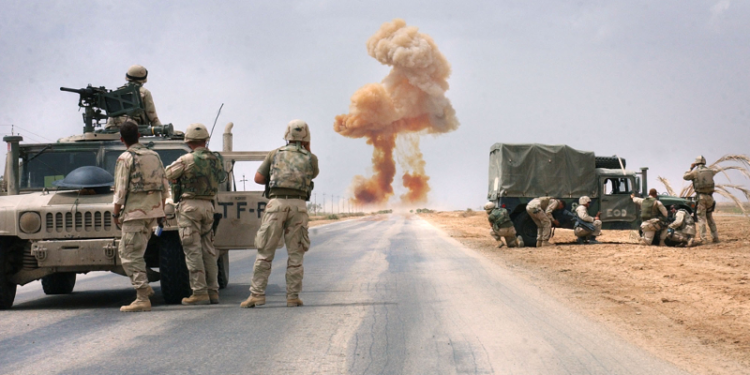March 19, 2003, marked a pivotal moment in contemporary history as the United States, supported by a coalition of allies, launched a military invasion of Iraq. The decision to initiate war culminated in a complex web of geopolitical tensions, longstanding grievances, and the pursuit of national interests.
At the heart of the conflict lay the assertion by the Bush administration, led by President George W. Bush, that Iraq, under the regime of Saddam Hussein, possessed weapons of mass destruction (WMDs) and posed an imminent threat to global security. Despite contentious debates and widespread scepticism from the international community, the United States remained resolute in its determination to disarm Iraq and depose Saddam Hussein.
The 19th of March 2003 saw the commencement of “Operation Iraqi Freedom,” as American and British forces launched airstrikes targeting key military installations and government facilities in Baghdad and other strategic locations across Iraq. The goal was to incapacitate the Iraqi regime swiftly and decisively, paving the way for regime change and the establishment of a democratic government.
However, the unfolding events of March 19, 2003, were not merely confined to military manoeuvres. They also underscored deep divisions within the global community regarding the legitimacy and necessity of the war. While some nations, notably the United Kingdom, Australia, and a handful of others, stood in solidarity with the United States, many others, including traditional allies of America, such as France, Germany, and Canada, vehemently opposed the invasion, advocating for a diplomatic resolution and raising doubts about the evidence of WMDs.
Moreover, the decision to go to war on March 19, 2003, triggered widespread protests and demonstrations across the world, with millions taking to the streets to voice their opposition to military intervention. From New York to London, Paris to Sydney, citizens expressed their concerns about the human cost of war, the erosion of international law, and the potential for escalating violence and instability in the Middle East.
In the years that followed, the Iraq War would prove to be one of the most contentious and divisive conflicts of the 21st century. Its ramifications extended far beyond the borders of Iraq, reshaping regional dynamics, fueling sectarian tensions, and sowing the seeds of future instability. Moreover, the failure to uncover WMDs, the protracted insurgency, and the absence of a viable exit strategy would cast a long shadow over the legitimacy and efficacy of the intervention.
As we reflect on March 19, 2003, and its significance, we are reminded of the profound complexities inherent in international relations, the moral dilemmas of war, and the enduring quest for peace and stability in an ever-changing world.
newshub



Recent Comments